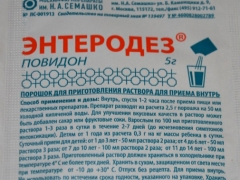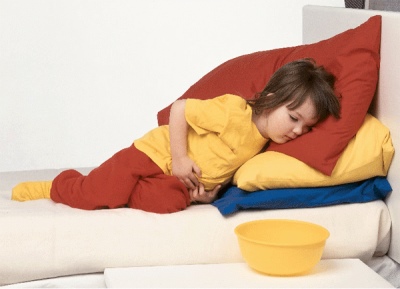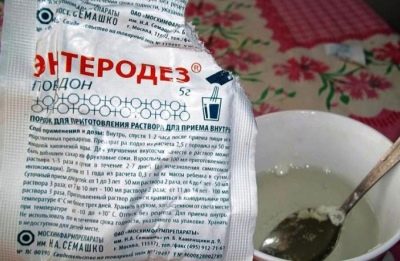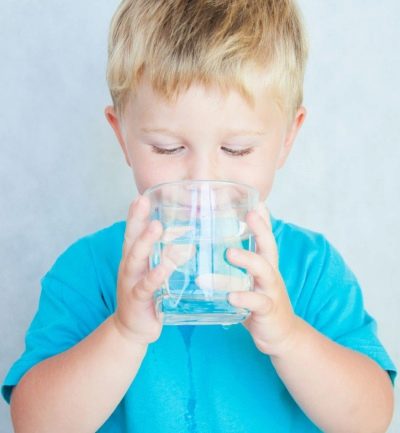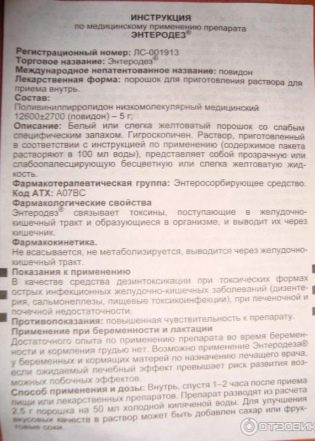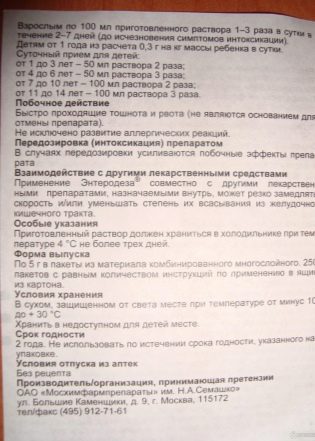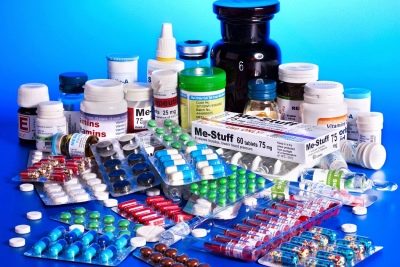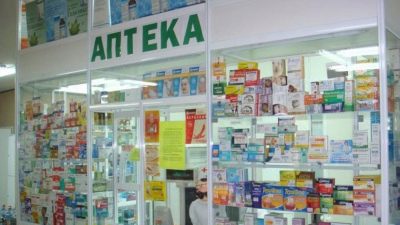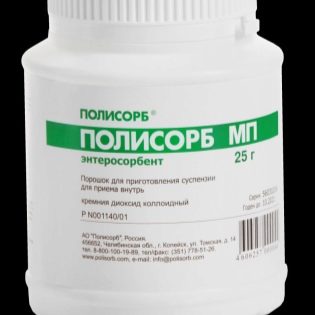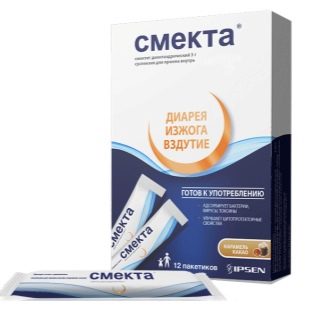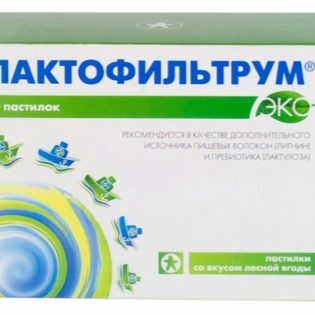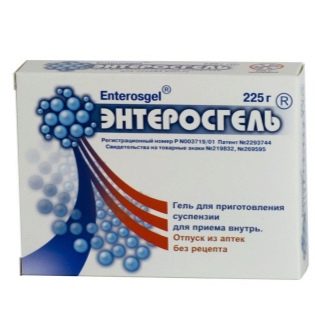Enterodesis for children: instructions for use
"Enterodez" in its structure and properties refers to drugs from the group of adsorbents. The drug is taken orally, because after entering the intestine, it binds various toxins, infectious agents and other harmful particles. This tool is often prescribed for adults with intestinal infections or poisoning, but is it possible to give it to a child? In what situations is Enterodes shown for children and in what doses is it used in childhood?
Release form and composition
"Enterodez" is a Russian drug, which is made in powder form. It is sold in moisture-proof bags containing 5 or 50 grams of white or slightly yellowish fine powder, which has an unexpressed specific odor. After adding water to this powder, a clear liquid is formed that does not have a color or has a yellowish tint.
The main and only ingredient of "Enterodez" is povidone. It is a low molecular weight polymeric compound, also called polyvinylpyrrolidone. Its amount in one bag corresponds to the weight of the powder, that is, 1 package of “Enterodez” contains 5 or 50 g of povidone.
Operating principle
The drug is referred to as enterosorbents, as it has a pronounced adsorbing effect. Povidone in the composition of the drug is able to bind toxic and harmful substances that are in the gastrointestinal tract (they can get there with food or with the bloodstream), after which it removes them through the intestines.
With the help of povidone, you can get rid of allergens, drugs, various toxic substances, viruses, toxic metabolites, pathogenic microorganisms or fungi. At the same time, such a compound is unable to be absorbed into the blood and does not undergo any metabolic changes in the digestive tract, that is, is excreted unchanged.
Indications
"Enterodez" is most often prescribed for infectious lesions of the gastrointestinal tract, for example, for salmonellosis, dysentery, staphylococcal toxicoinfection and similar diseases. It may also be prescribed for other infections, such as the flu. The drug is also in demand for burns, injuries, radiation therapy, chronic gastrointestinal diseases.
In addition, "Enterodez" is used in case of renal failure, due to which substances harmful to the body leave the body with urine, even if the kidney function is severely impaired. This remedy is also prescribed for patients with hepatic insufficiency in order to excrete toxic compounds from the body when the liver cannot neutralize them.
From what age is prescribed?
Doctors consider "Enterodez" safe and low-allergenic means allowed for children from birth. It may even be given to newborns with hemolytic disease, toxemia, or other problems. Older kids pediatricians prescribe such a solution for food poisoning, acute respiratory infections and other diseases.
Contraindications
The drug is not given to children who have increased sensitivity to povidone. There are no other contraindications for the use of "Enterodez".
Side effects
Nausea or vomiting may occur during the administration of "Enterodesis", but treatment should not be canceled for such symptoms.
In some patients, the drug may cause an allergic reaction. In this situation, the reception is immediately stopped.
Instructions for use
"Enterodez" take inside after the powder is diluted with boiled cold water. To dilute the drug take 100 ml of water per 5 g of powder. Pouring water into the container with the powder, it gently stir until the composition becomes transparent. To improve the taste of the finished solution, you can add fruit juice or sugar. It is recommended to give medicine to the child in 1-2 hours after eating.
Dosage for children is best calculated by weight. Such a calculation must be made by the attending physician, who multiplies 0.3 g of powder by a figure corresponding to the body weight of the child in kilograms. For example, a baby with a weight of 10 kg will need 3 grams of povidone (0.3 x 10). The resulting figure is the daily dose of "Enterodez" for a particular patient, which is divided into 2-3 doses.
Medium dosages of the drug in childhood are as follows:
- if the child is 1-3 years old, he is advised to give 50 ml of the prepared solution twice a day (1 sachet per day);
- patients 4-6 years old, the drug also give 50 ml per reception, but three times a day, which corresponds to 1.5 sachets per day;
- children 7-10 years old, the medication is given twice in a single dose of 100 ml (2 sachets of 5 g per day);
- In patients older than 11 years, Enterodez is administered 100 ml 1 to 3 times per day (1-3 sachets).
It is advised to take such a medicine to completely eliminate vomiting, loose stools, fever, weakness and other signs of intoxication. Depending on the disease, the drug is used from two days to one week or longer.
Overdose
If the child drinks the solution in a larger volume than is indicated for his age, this will lead to severe nausea, weakness, vomiting, palpitations and other symptoms. Specific treatment for overdose is not used: as soon as the drug leaves the body, all the symptoms will disappear. To speed up its elimination, the doctor may prescribe a laxative.
Drug interaction
When used in addition to "Enterodez" other drugs that are taken orally, it is important to consider that the drug will affect the speed and extent of their absorption in the intestine, so there should be a break of 1-2 hours between taking the solution and other drugs.
Terms of sale and storage
“Enterodez” is referred to as over-the-counter medicine, therefore there are no difficulties with its purchase at the pharmacy. The average price of one bag is 100-130 rubles. Unopened bags should be kept out of the reach of children, where the temperature will be from -10 to +25 degrees.
Shelf life of the drug in sealed bags is 2 years. After mixing the powder with water, the drug can be stored in the refrigerator for a maximum of 3 days.
Reviews
Almost all parents who gave Enterodez to babies with vomiting and diarrhea or for other reasons, speak positively about this tool. They confirm the high efficiency of such a sorbent and its rapid action with various intoxications.
The disadvantages of the drug include its not too pleasant taste (some kids refuse to drink it because of the bitter taste), as well as the relatively high cost (there are quite a few analogues cheaper).
Analogs
Other sorbents can be used to replace "Enterodez", for example, "Polysorb MP", "Polifepan", "Lactofiltrum"," Enterumin ","Activated carbon», «Smecta», «Enterosgel" and so on.
All these tools due to the special structure can absorb harmful substances, viruses and bacteria, and therefore help with poisoning, rotavirus, salmonellosis and many other diseases. At the same time, the doctor should choose the analogue and calculate its dosage for a particular child.
How to help a child with poisoning, see the following video.
